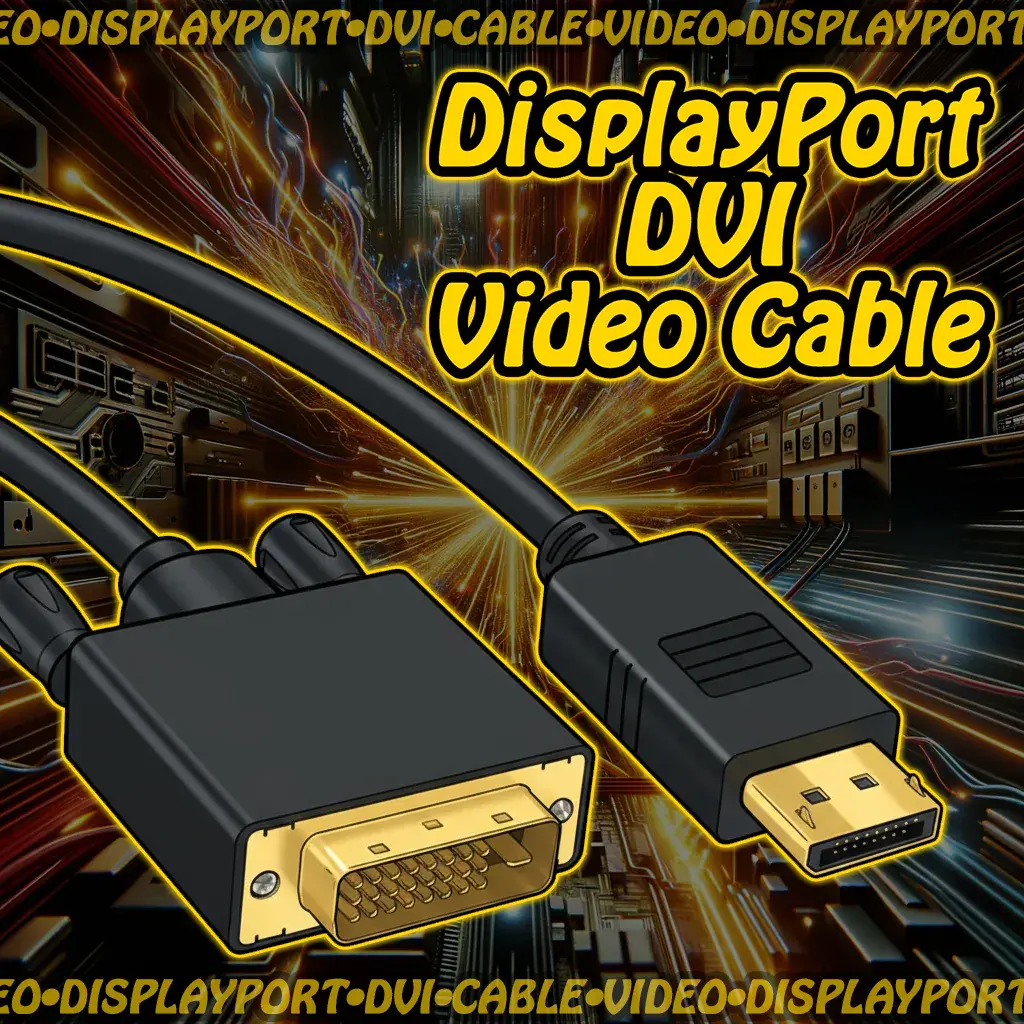🧠🖥️ DisplayPort • DVI Cable
This cable transmits digital video from a DisplayPort-equipped device to a DVI-D display. It’s ideal for connecting newer PCs, laptops, or docking stations to older monitors or projectors that only support DVI-D input.
🔧 Cable Format & Use Case
- 🔌 DisplayPort Male → DVI-D Male
- DisplayPort plugs into GPU, laptop, or dock
- DVI-D plugs into monitor or projector
- Use Case: Send digital video from DisplayPort source to DVI-D display
🖥️ Compatible Devices
- 💻 Laptops and desktops with DisplayPort output
- 📺 Monitors and projectors with DVI-D input
- 🧠 Docking stations and AV switchers with DisplayPort
- 🛠️ Embedded systems or industrial PCs with DisplayPort-only output
- 🎮 Legacy displays used in gaming or media setups
✅ Common Uses
- 🧠 Connect workstation GPU to legacy DVI monitor
- 🛠️ Link DisplayPort dock to DVI projector in conference rooms
- 🎥 Present from DisplayPort laptop to DVI display
- 🧪 Test DVI monitors using DisplayPort sources
- 🏫 Use in classrooms or labs with mixed-format AV gear
🧠 Signal Format Notes
- ⚙️ DisplayPort and DVI-D both carry digital video
- 📡 Supports up to 1920×1200 @ 60Hz (Single Link DVI)
- 🔁 Cable is unidirectional—DisplayPort source → DVI display only
- 🔊 No audio—DVI does not support sound
- 🧠 Passive cables work with DisplayPort++ (Dual Mode)
⚠️ Things to Watch Out For
- 🚫 Not bidirectional—won’t work DVI → DisplayPort
- 🔌 Mini DisplayPort ≠ full-size DisplayPort—check connector type
- 🧯 Some GPUs require active adapters for multi-monitor setups
- 📉 DVI displays may not support high refresh rates or resolutions
- 🧪 HDCP-protected content may not play on non-compliant DVI monitors
🛠️ Quick Tips for Beginners
- 🧠 Confirm your DisplayPort supports Dual Mode (DP++) for passive cable use
- 🔍 Use active cable for 1440p+ or long-distance runs
- 🧲 Choose gold-plated connectors for better durability
- 🧼 Clean ports gently—dust can cause flickering or sync issues
- 🏷️ Label cable direction—DisplayPort → DVI only












